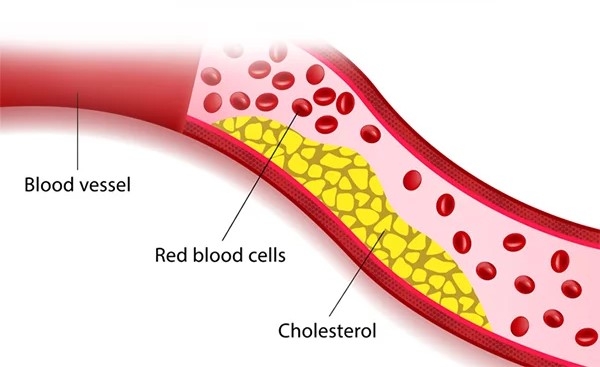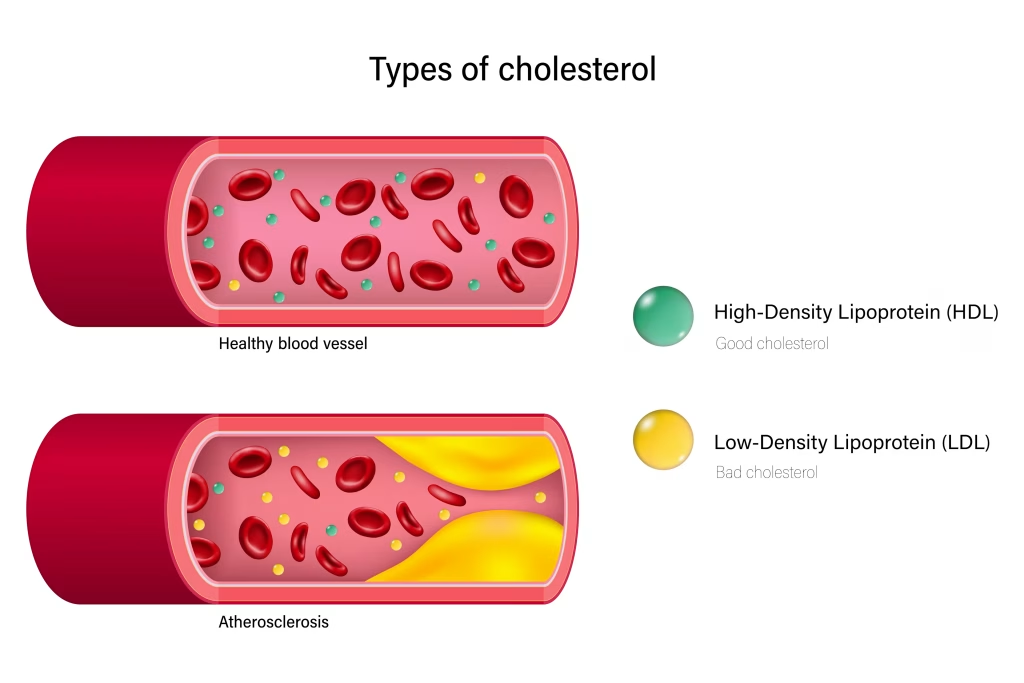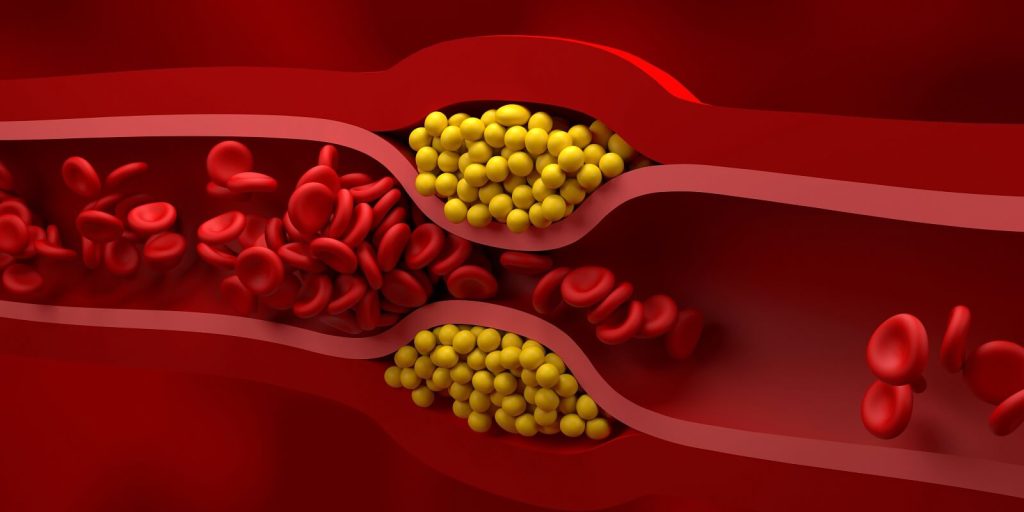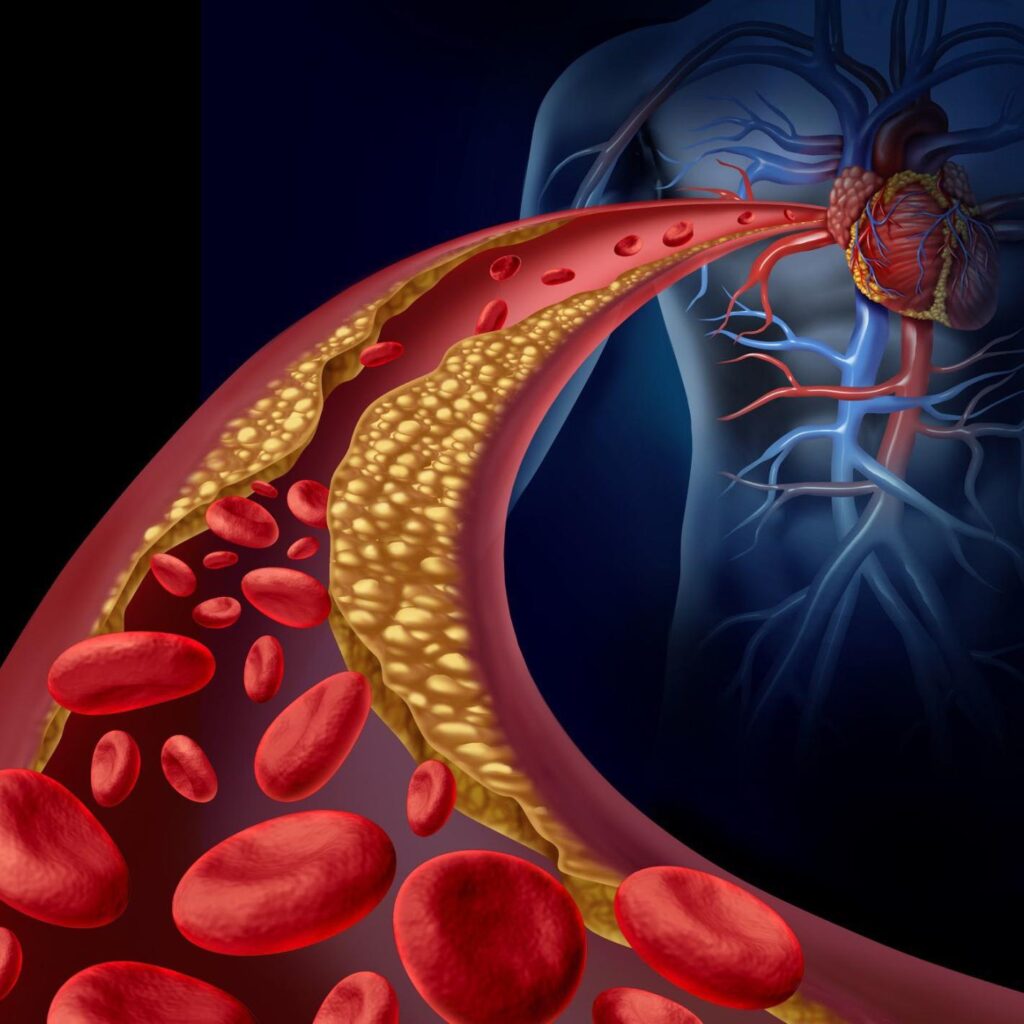High blood cholesterol, also known as hypercholesterolemia, is a condition in which there is an excessive amount of cholesterol in the blood. Cholesterol is a fat-like substance that is essential for building cells and producing certain hormones. However, when too much of it circulates in the blood, it can accumulate in the walls of arteries, leading to a condition called atherosclerosis, which increases the risk of heart disease, stroke, and other circulatory problems.

There are two main types of cholesterol:
- LDL (Low-Density Lipoprotein) – often called “bad cholesterol” because high levels can lead to plaque buildup in arteries.
- HDL (High-Density Lipoprotein) – known as “good cholesterol” because it helps remove excess cholesterol from the bloodstream.
High blood cholesterol usually has no symptoms, so it is often detected through routine blood tests. It can be caused by a combination of genetics, unhealthy diet, lack of physical activity, obesity, and other medical conditions like diabetes.
Managing high cholesterol involves lifestyle changes such as eating a heart-healthy diet (low in saturated fats and trans fats), exercising regularly, maintaining a healthy weight, quitting smoking, and sometimes taking cholesterol-lowering medications like statins. Regular monitoring is important to reduce the risk of serious cardiovascular complications.

Causes of High Blood Cholesterol:
High blood cholesterol can be caused by a combination of lifestyle factors, medical conditions, and genetics. One of the most common causes is an unhealthy diet, especially one high in saturated fats, trans fats, and cholesterol, which are often found in fried foods, red meat, and full-fat dairy products. Lack of physical activity also contributes by lowering good cholesterol (HDL) and raising bad cholesterol (LDL). Being overweight or obese further increases the risk, as does smoking, which damages blood vessels and reduces HDL levels. Excessive alcohol consumption can also negatively affect cholesterol levels. In some cases, high cholesterol runs in families due to inherited genetic conditions like familial hypercholesterolemia. Certain medical conditions such as diabetes, hypothyroidism, kidney disease, and liver disease can also contribute to elevated cholesterol. Additionally, some medications may affect how the body processes fats, leading to higher cholesterol levels.
Unhealthy Diet:
- Eating foods high in saturated fats, trans fats, and cholesterol (e.g., red meat, fried foods, full-fat dairy).
- Excessive intake of processed or fast foods.
Lack of Physical Activity:
- Being inactive can lower HDL (good cholesterol) and raise LDL (bad cholesterol).
Obesity or Overweight:
- Extra body fat, especially around the waist, is linked to higher LDL and lower HDL levels.
Smoking:
- Damages blood vessels and lowers HDL cholesterol.
- Promotes plaque buildup in arteries.
Excess Alcohol Consumption:
- Can raise total cholesterol and triglyceride levels.
Genetics (Familial Hypercholesterolemia):
- Some people inherit genes that cause the body to produce too much cholesterol.
Age and Sex:
- Cholesterol levels tend to rise with age.
- Women may have lower cholesterol than men before menopause, but levels can rise after.
Medical Conditions:
- Conditions like diabetes, hypothyroidism, kidney disease, and liver disease can increase cholesterol levels.
Certain Medications:
- Some drugs (e.g., steroids, progestins, and certain blood pressure medications) can raise cholesterol levels.

Solutions for High Blood Cholesterol:
Managing high blood cholesterol involves a combination of lifestyle changes, diet improvements, and in some cases, medication. The most effective solution is adopting a heart-healthy lifestyle. This includes eating a balanced diet low in saturated fats, trans fats, and cholesterol—focusing instead on fruits, vegetables, whole grains, lean proteins, and healthy fats like those found in nuts and fish. Regular physical activity, such as brisk walking, cycling, or swimming for at least 30 minutes most days of the week, can help raise HDL (good cholesterol) and lower LDL (bad cholesterol). Maintaining a healthy weight and avoiding tobacco smoke are also crucial steps. Limiting alcohol intake further supports cholesterol control. For individuals with very high cholesterol or those at high risk of heart disease, doctors may prescribe cholesterol-lowering medications such as statins. Regular check-ups and blood tests are important to monitor cholesterol levels and adjust treatment plans as needed. Making these changes not only lowers cholesterol but also improves overall cardiovascular health.
Healthy Diet:
- Eat more fruits, vegetables, whole grains, and legumes.
- Choose lean proteins (e.g., fish, skinless poultry, beans).
- Use healthy fats like olive oil and avocado.
- Avoid saturated fats, trans fats, and processed foods.
Regular Exercise:
- Aim for at least 30 minutes of moderate activity (e.g., walking, cycling) most days of the week.
Maintain a Healthy Weight:
- Lose excess weight to help lower LDL and raise HDL cholesterol.
Quit Smoking:
- Improves HDL levels and heart health overall.
Limit Alcohol:
- If you drink, do so in moderation (1 drink/day for women, 2 for men).
Medication (if prescribed):
- Statins or other cholesterol-lowering drugs may be necessary in some cases.
Regular Check-ups:
- Monitor cholesterol levels with routine blood tests and follow medical advice.
